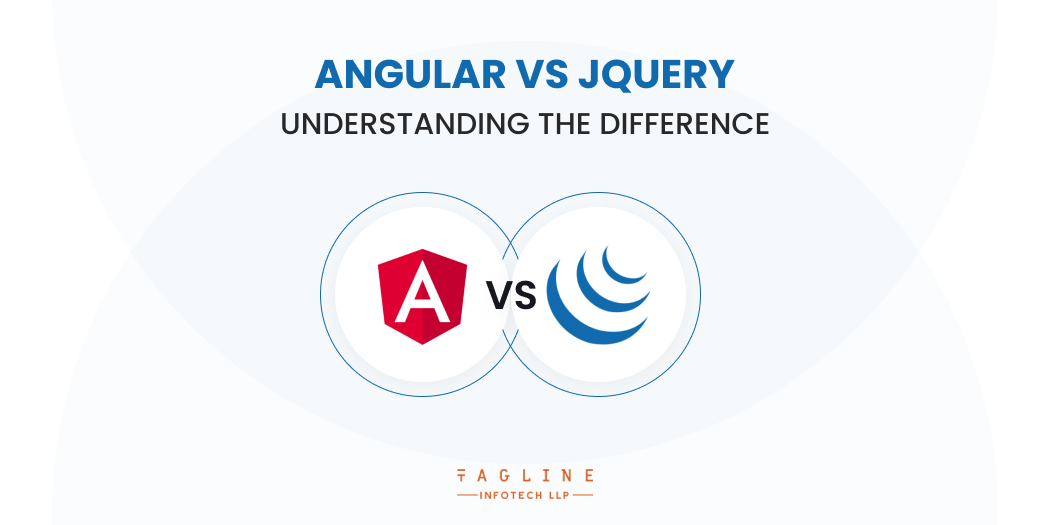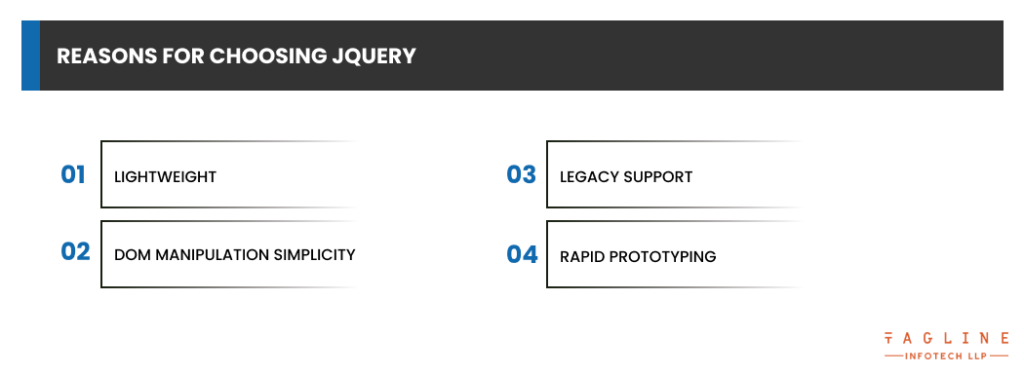How to Set up Google Firestore Database IOS?
May 21, 2024
Home >> AngularJS >> Angular vs jQuery: Understanding the Difference

Angular and jQuery are two of the maximum popular selections in web improvement that enable developers to construct dynamic and interactive web applications and pages. A range of tools and libraries are to be had to assist builders in making these internet pages and packages. We will look at the differences and capabilities of Angular and jQuery, as well as the motives for deciding on one over the other in this article.
Angular is a powerful open-source the front-give up framework evolved and maintained by means of Google. It is written in TypeScript, a superset of JavaScript, and lets in developers to construct one-page programs (SPAs) quite simply. Angular delivers a comprehensive set of tools and features to simplify the development cycle and beautify the performance of web applications. With Angular, designers can construct complicated, responsive, and scalable web applications with a modular shape.

Two-way Data Binding: Angular offers a feature called two-way data binding, which allows automatic synchronization of data between the model and the view. Any changes made to the model are instantly reflected in the view, and vice versa, making it easier to manage application state.
Dependency Injection: Angular’s dependency injection system allows components to be loosely coupled, promoting better code reusability and testability.
Directives: Angular provides powerful directives that enable developers to extend the functionality of HTML elements and create custom behaviors.
Component-based Architecture: Angular follows a component-based architecture, where the entire application is built using small, reusable components. This modular approach simplifies maintenance and improves code readability.
Routing: Angular comes with an in-built router that enables developers to create navigation within their applications and handle different views effectively.
jQuery, on the other hand, is a famous open-supply JavaScript library designed to simplify HTML DOM manipulation, event managing, and animation. It become created by means of John Resig and has won large adoption because of its simplicity and cross-browser compatibility. JQuery is particularly focused on enhancing the consumer revel in by presenting a smooth and efficient way to interact with HTML elements on web pages.

Looking to build a web application with AngularJS?
Connect with us to Hire our experienced Angular developers to develop a dynamic, user-friendly application exceeding your expectations.
While both Angular and jQuery are valuable tools for web development, they have significant differences in terms of their purpose, complexity, and approach to building applications.


Also Read : Angular vs React: Which is Better Front-end Frameworks for Web Development?
Aside from the truth that each Angular and jQuery are extraordinarily effective web development tools, every has its very own strengths and applications. A comprehensive front-give up framework called Angular is designed to help you construct scalable, complicated SPAs, while a lightweight library called jQuery goals to simplify DOM manipulation and add interactivity for your internet pages. Depending on the specific necessities of the undertaking, the complexity of the application, and the alternatives of the development group, it’s far essential to choose among the two.
Angular is ideal for large-scale projects where maintainability and scalability are crucial. jQuery, on the other hand, is better suited for simpler tasks like adding interactivity to existing web pages or performing basic DOM manipulation.
Yes, it is possible to use Angular and jQuery together, but it's important to be cautious. Angular's design philosophy contradicts some of jQuery's practices, which can lead to conflicts or inefficiencies.

Digital Valley, 423, Apple Square, beside Lajamni Chowk, Mota Varachha, Surat, Gujarat 394101
+91 9913 808 2851133 Sampley Ln Leander, Texas, 78641
52 Godalming Avenue, wallington, London - SM6 8NW